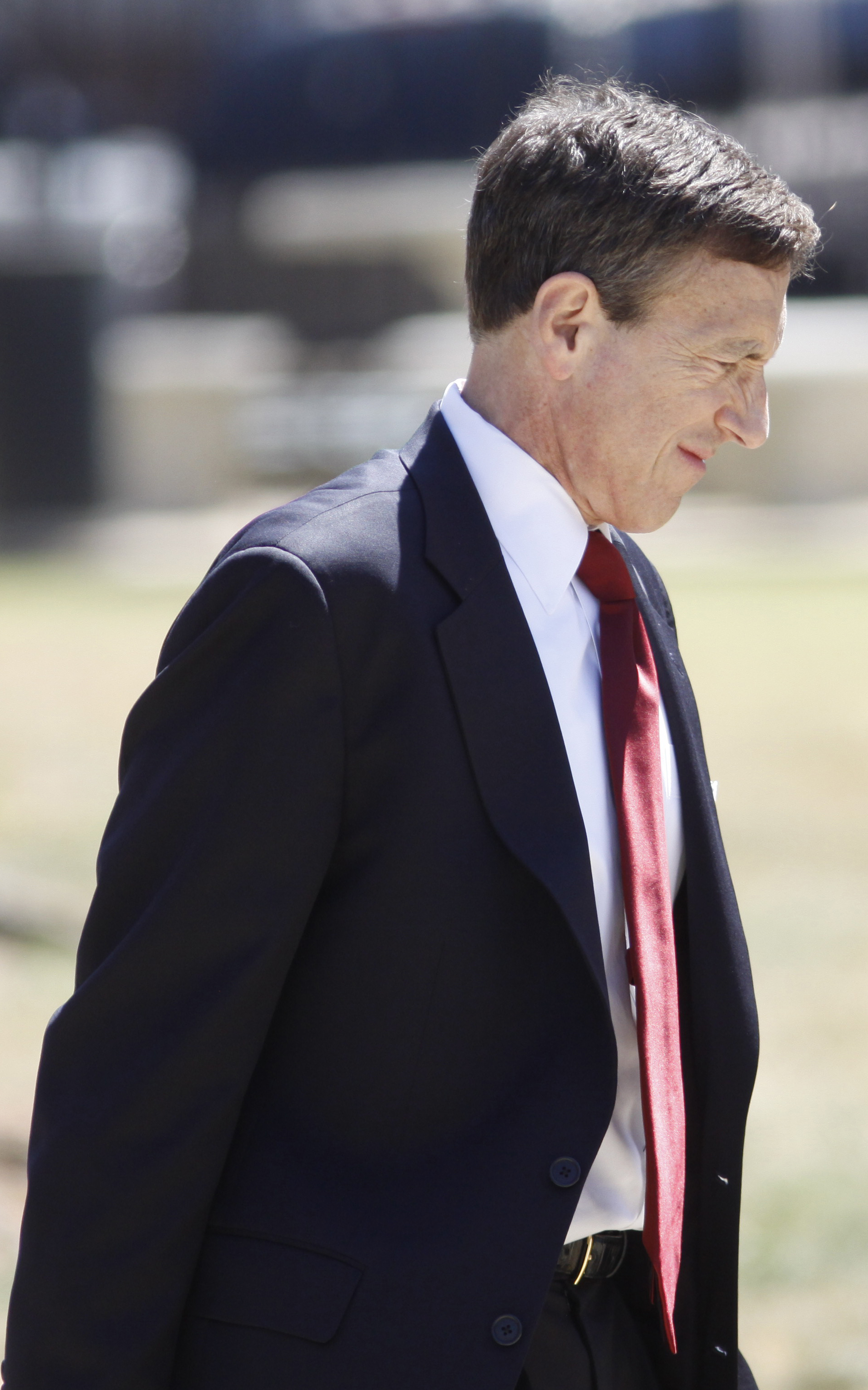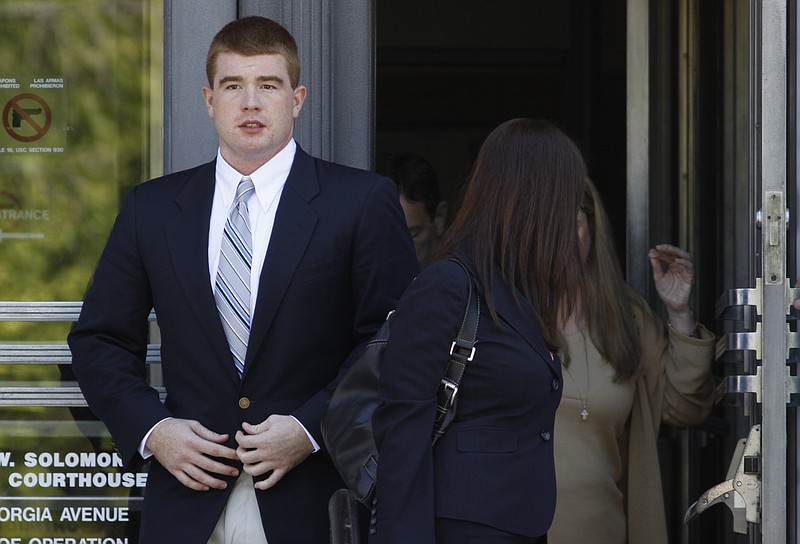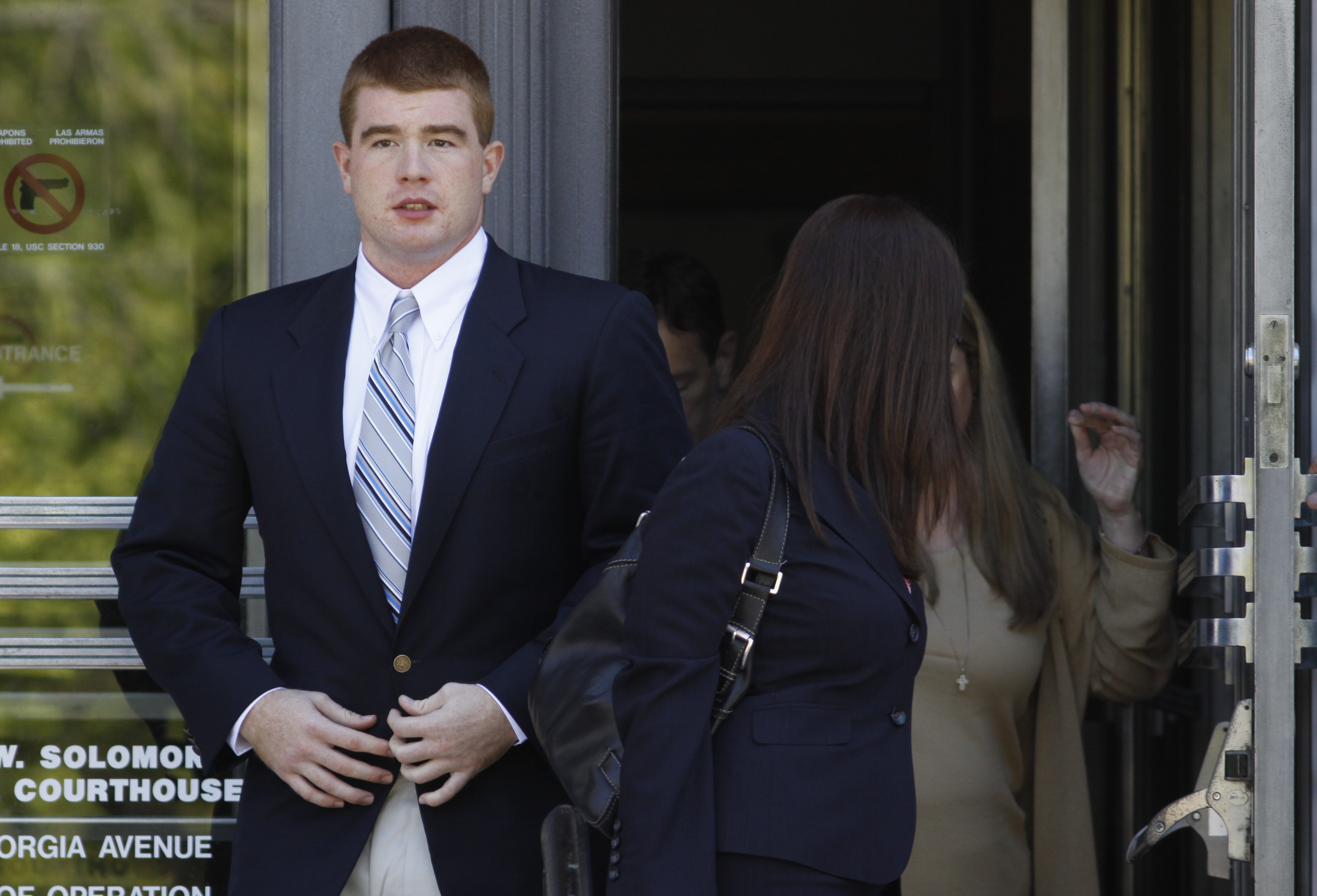The college student who is suing Sewanee: The University of the South over his treatment during a rape accusation testified Thursday.
In U.S. District Court in Chattanooga, attorney Elisha King asked the 22-year-old, identified in court papers as "John Doe," about the accusation that led to his expulsion in 2008. King asked Doe to explain when he learned he was being investigated and how he felt through the process.
"I was outraged. I tried to tell [Dean Eric Hartman] how this just couldn't be true," Doe said. "Honestly, I was really stunned by the whole situation."
Doe is seeking $3 million for damage to his reputation.
Through nearly two hours of testimony, Doe remained calm and answered questions in a measured tone, twice dabbing moisture from his upper lip with tissue paper. He will be back on the stand this morning.
The nine-member jury watched him closely through almost all of his testimony. Jurors appeared to focus more intently on Doe than on earlier witnesses called during the first three days of the trial.
The incident took place in Doe's dorm room at Sewanee on Aug. 29, 2008, after Doe and a woman identified in court papers as A.B. had been drinking alcohol. The faculty discipline committee would learn during Doe's hearing on the matter that A.B. also was on "mood stabilizers" and depression medication.
After the alleged act, A.B. stayed in Doe's room for a few hours. She left about 7 a.m. and called police to report that Doe had raped her. Doe maintained they had consensual sex.
A.B. met with Hartman on Sept. 16, 2008, nearly three weeks later and wrote a statement about the incident. Hartman called Associate Dean Alexander Bruce, who investigated the incident but did not speak with either A.B. or Doe.
A.B. later left the school for drug and alcohol treatment and did not pursue criminal charges against Doe.
Before the hearing at Sewanee, Doe was told to write a statement and have a character witness but not to worry about getting more witnesses.
Hartman also made Doe sign a no-contact order, meaning he could not talk to anyone about the pending hearing or attempt to learn more from potential witnesses.
Doe described how he was told of the charges on a Thursday morning and that the hearing would be the next day. His testimony echoed that of previous witnesses.
At the hearing, the committee found Doe guilty of violating school policy and expelled him. Hartman gave Doe the option of reapplying in one semester with the rape charge on his student record or leaving for a year and reapplying with a clean record.
King asked Doe to recount what happened after was told to leave campus. Doe said he was denied admittance to at least two other universities, went to live in California with his grandmother and later went to another college.
Earlier Thursday, Hartman was questioned by Doe's other attorney, Charles Wayne, and by the university's attorney, Rosemarie Bryan.
Wayne asked Hartman for details about how he handled the original complaint and later investigation, hearing and discipline of Doe.
 Attorney Charles B. Wayne exits the Joel W. Solomon Federal Building on Tuesday with his client "John Doe" during the first day of a jury trial against the University of the South after being expelled in 2009 for an alleged rape. "Doe" and his family's real names have not yet been released in an attempt to remain anonymous.
Attorney Charles B. Wayne exits the Joel W. Solomon Federal Building on Tuesday with his client "John Doe" during the first day of a jury trial against the University of the South after being expelled in 2009 for an alleged rape. "Doe" and his family's real names have not yet been released in an attempt to remain anonymous.Hartman agreed with Wayne that he had not had specific training on conducting sexual assault disciplinary proceedings. But Hartman explained to the jury that the hearings are not intended to run like criminal proceedings.
"We work hard to create a process that's fair but also educate [students] along the way," Hartman said.
He shied away from words such as "guilt" or "punishment" and instead characterized the process as a way to hear each side of the story independently.
Wayne and King expect to finish presenting their case today; Bryan and her co-counsel will then begin calling their witnesses.
After the jury left court at the end of the day Thursday, U.S. District Judge Harry S. "Sandy" Mattice reminded attorneys that this isn't a rape trial.
"This case is not about rape, it's about whether the process was adequate or not," Mattice said. "We're never going to know what happened in the dorm room that night."


